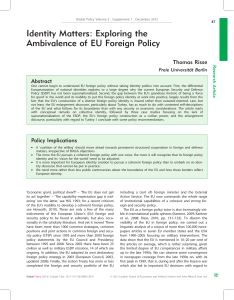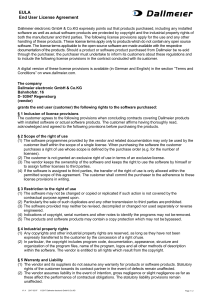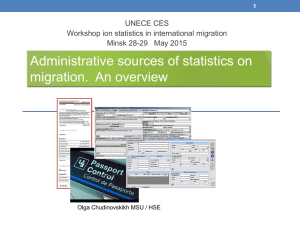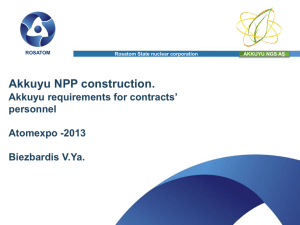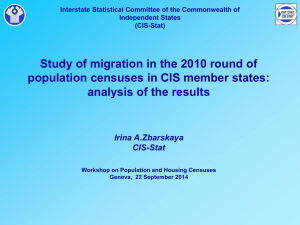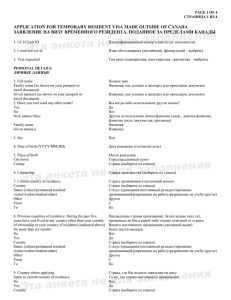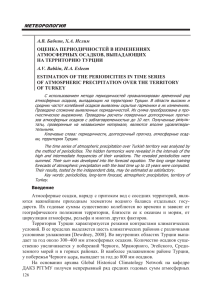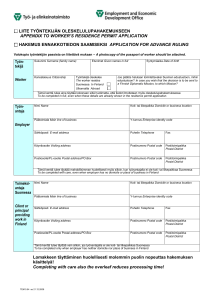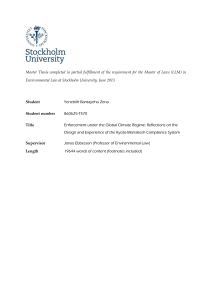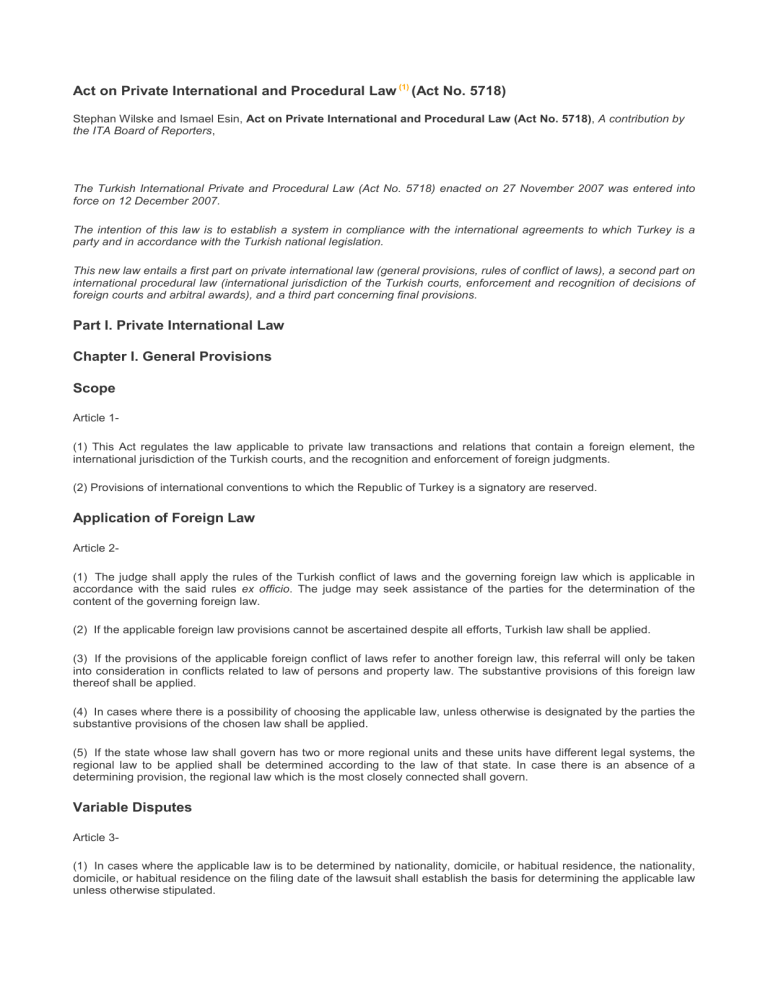
Act on Private International and Procedural Law (1) (Act No. 5718) Stephan Wilske and Ismael Esin, Act on Private International and Procedural Law (Act No. 5718), A contribution by the ITA Board of Reporters, The Turkish International Private and Procedural Law (Act No. 5718) enacted on 27 November 2007 was entered into force on 12 December 2007. The intention of this law is to establish a system in compliance with the international agreements to which Turkey is a party and in accordance with the Turkish national legislation. This new law entails a first part on private international law (general provisions, rules of conflict of laws), a second part on international procedural law (international jurisdiction of the Turkish courts, enforcement and recognition of decisions of foreign courts and arbitral awards), and a third part concerning final provisions. Part I. Private International Law Chapter I. General Provisions Scope Article 1(1) This Act regulates the law applicable to private law transactions and relations that contain a foreign element, the international jurisdiction of the Turkish courts, and the recognition and enforcement of foreign judgments. (2) Provisions of international conventions to which the Republic of Turkey is a signatory are reserved. Application of Foreign Law Article 2(1) The judge shall apply the rules of the Turkish conflict of laws and the governing foreign law which is applicable in accordance with the said rules ex officio. The judge may seek assistance of the parties for the determination of the content of the governing foreign law. (2) If the applicable foreign law provisions cannot be ascertained despite all efforts, Turkish law shall be applied. (3) If the provisions of the applicable foreign conflict of laws refer to another foreign law, this referral will only be taken into consideration in conflicts related to law of persons and property law. The substantive provisions of this foreign law thereof shall be applied. (4) In cases where there is a possibility of choosing the applicable law, unless otherwise is designated by the parties the substantive provisions of the chosen law shall be applied. (5) If the state whose law shall govern has two or more regional units and these units have different legal systems, the regional law to be applied shall be determined according to the law of that state. In case there is an absence of a determining provision, the regional law which is the most closely connected shall govern. Variable Disputes Article 3(1) In cases where the applicable law is to be determined by nationality, domicile, or habitual residence, the nationality, domicile, or habitual residence on the filing date of the lawsuit shall establish the basis for determining the applicable law unless otherwise stipulated. Applicable Law Based on Nationality Article 4(1) If the applicable law is designated pursuant to nationality under this Act, unless otherwise provided in this Act, the following laws shall be applied: a) With respect to a stateless person, the law of the place of his/her domicile, in the absence thereof, place of his/her habitual residence, and in the absence thereof, the state where he/she is residing on the date of the lawsuit, b) With respect to a person of multiple citizenship where he/she is also a Turkish citizen, the Turkish law, c) With respect to a person of multiple citizenship where he/she is not a Turkish citizen, the law of the state with which he/she is most closely connected. Violation of Public Order Article 5(1) If the provision of the foreign law to be applied in a certain case is openly contrary to the public order of Turkey, the said provision shall not be applied. Where it is deemed necessary, Turkish law shall be applied. Directly Applied Provisions of Turkish Law Article 6(1) Where the competent foreign law is applied, in cases which the provisions of Turkish law is directly applied in terms of scope of application and purpose of regulation, the mentioned provision will be applied. Form of Legal Transactions Article 7(1) Legal transactions may be carried out pursuant to the form being in conformity with the provisions prescribed by substantial law in accordance with the laws of the place of their execution or by the law applicable to the substance of the said legal transaction. Period of Limitation Article 8(1) Any period of limitation shall be governed by the law applicable to the substance of the legal transaction and legal relationship. Chapter II. Rules of Conflict of Laws Capacity Article 9(1) The legal capacity of a person shall be governed by his/her national law (2) (2) A person lacking legal capacity pursuant to his/her national law shall be bound by the transaction he/she has concluded if he/she is legally capable under the law of the state where he/she has concluded the transaction. Transactions pertaining to family law and inheritance law as well as “in rem” rights on immovable property located in foreign countries are excluded from the scope of this provision. (3) Change of citizenship shall not change the adult status a person acquired under his/her national law. (4) The legal capacities of legal entities or units of persons or assets are governed by the law of the jurisdiction where their administrative head-offices are located according to their statutes. However, where the de facto central office is located in Turkey, Turkish law may be applied. (5) The legal capacity of legal entities lacking statute and the group of persons and goods lacking legal entity shall be governed by the law in their “de facto” administrative headquarters. Tutelage, Restriction of Civil Rights and Trusteeship Article 10(1) The legal reasons underlying decisions issuing or revoking a tutelage or guardianship are governed by the national law of the person who is the subject of the said decision. (2) In cases where it is not possible to issue a decision regarding tutelage or guardianship pursuant to the national law of the foreign person, such a decision may be rendered pursuant to Turkish law, provided that the habitual residence of such foreign person is in Turkey. (3) All issues regarding tutelage, guardianship and trusteeship except the legal reasons for issuing or revoking tutelage or guardianship decisions, shall be governed by Turkish law. Missing Persons or Declaration of Death Article 11(1) The decision regarding the declaration of a person as missing or dead is governed by the national law of that person. If the assets of a person that cannot be declared missing or dead pursuant to the national law of that person are located in Turkey, or his/her spouse or one of his/her heirs is a Turkish citizen, the decision as to naming the person missing or dead shall be rendered pursuant to Turkish law. Engagement Article 12(1) The legal capacity to become engaged and the conditions thereof shall be governed by the respective national laws of the parties which are in force at the moment of engagement. (2) The provisions and consequences of the engagement are governed by the common national law or by Turkish law if the parties are of different nationalities. Marriage and the General Provisions Thereof Article 13(1) The legal capacity to marry and the conditions thereof shall be governed by the respective national laws of the parties at the time of the marriage. (2) The form of marriage shall be governed by the law of the state where the marriage is solemnized. (3) The general provisions of marriage shall be governed by the common national law of the spouses. If the spouses are of different nationalities, the law of their common habitual residence shall govern and in the absence of a common habitual residence, Turkish law shall govern. Divorce and Separation Article 14(1) The grounds and provisions for divorce and separation shall be governed by the common national law of the spouses. If the spouses have different nationalities, the law of the place of their common habitual residence, in case of absence of such residence, Turkish law shall govern. (2) The provisions of the first clause shall also govern demands for maintenance between divorced spouses. This provision also governs in cases of separation and nullity of marriage. (3) Custody and problems thereof in accordance to divorce is also governed by the provisions of the first clause. (4) Turkish law shall govern demands for temporary measures. Matrimonial Property Article 15(1) Spouses may clearly designate either the internal law of their habitual residence or national law at the time of marriage to govern their matrimonial property. Where no such choice has been made, the common national law of the spouses at the time of marriage, or in the absence of common law, the internal law of their habitual residence at the time of marriage shall govern or in the absence thereof, the Turkish law shall govern. (2) In case of liquidation of property, the immovable are governed by the state law which they are located in. (3) If the spouses acquire a new common nationality upon marriage, the laws of their new nationality may govern, provided that the rights of third parties are reserved. Establishment of Parentage Article 16(1) The establishment of parentage is subject to the national law of the child at the time of birth, if not established then to the law of his habitual residence. If the parentage can not be established pursuant to these laws, the national law of the mother or father at the time of birth of child, and if it is not established then the law of common habitual residence of parents and if it is still not established the law of place of birth of child shall govern the establishment of parentage. (2) Annulment is subject to law which has governed the establishment of parentage. Effects of Parentage Article 17(1) Effects of parentage are subject to law which has governed the establishment. If there is a common national law of the father, mother and child, that law shall govern if not, common habitual residence law shall govern the effects of parentage. Adoption Article 18(1) The relevant national law of each of the parties at the time of an adoption shall govern the legal capacity and conditions of adoption. (2) The national laws of the spouses shall be jointly applicable to adoption with respect to the consent to the adoption of the other spouse. (3) The adoption itself shall be governed by the national law of the adoptive parent, and in case of a joint adoption, by the law governing the general provisions of the marriage. Alimony Article 19(1) The habitual residence law of the creditor shall govern the alimony. Inheritance Article 20(1) The national law of the deceased shall govern inheritance. Turkish law shall apply to immovable property located in Turkey. (2) Provisions relating to the reasons of opening, acquisition and distribution of succession shall be governed by the law of the state where the estate is located. (3) The State shall inherit estates situated in Turkey that do not have any inheritors. (4) The form of a testamentary disposition is subject to the provision of Article 7. A testamentary disposition executed in compliance with the national law of the deceased shall also be valid. (5) The legal competency to execute a testamentary disposition is governed by the national law of the executing person at the time of the execution. Rights in Rem Article 21(1) The law of the place where the property is located which is in force at the moment of transaction shall govern the ownership and other rights in rem to movable and immovable property. (2) Rights in rem to goods that are en route shall be governed by the law of the state of their destination. (3) In cases of change of location, un-acquired rights in rem are governed by the law of the state where the goods were most recently located. (4) The form of legal transactions concerning rights in rem to immovable property shall be governed by the law of the state where the immovable property is located. Carriage Vehicles Article 22(1) The rights in rem on the air, sea and railway carriage vehicles are subject to the law of the country of origin. (2) The country of origin of the air and sea carriage vehicles is the place where the rights in rem on these vehicles are registered; if there is not such a registration place for sea vehicles it is the port of commission and for the railway vehicles it is the license place. The Applicable Law For Intellectual Property Rights Article 23(1) The rights of intellectual property are subject to the law of state according to whose law their protection is demanded. (2) The parties may decide that the court's law shall be applied about the resulting claims after the violation of a intellectual property right. The Applicable Law for Contractual Obligation Relations Article 24(1) The law explicitly designated by the parties shall govern the contractual obligation relations. The designation which can be concluded without hesitation from the provisions of the contract or is understood from the affairs of the case is also valid. (2) The parties may decide that the designated law shall be applied totally or partially to the contract. (3) The designation of the applicable law can any time be realized and amended by the parties. The designation of law after the conclusion of a contract is retrospectively effective with the condition that the rights of third parties' stay reserved. (4) If the parties have not explicitly designated any law, the relation arising from the contract will be governed by the most connected law to the contract. This law is accepted to be the law of the habitual residence (at the moment of the conclusion of contract) of the debtor of the characteristic performance; the law of the workplace or (in absence of a workplace) the law of the residence of the abovementioned debtor in case the contract is concluded as a result of commercial and professional activities; in case that the debtor has multiple workplaces, the law of the workplace which is the most tightly related to the contract. Nevertheless considering the state of all affairs if there is a law more tightly related to the contract, that particular law shall govern. Contracts Relating to Immovable Article 25(1) The contracts relating to immovable or to their usage are subject to the law of state where they are located. Consumer Contracts Article 26(1) The consumer contracts lacking a professional or commercial aim but concluded in order to acquire goods, service or credit, are subject to the law designated by the parties. The minimum protection which the consumer will be hold through the statutory provisions of law of his/her habitual residence, are reserved. (2) In case the parties have not designated a law, the law of the habitual residence of the consumer shall govern. In order for this law to be applied; a) The contract should be concluded upon a specially sent invitation or an announcement, and the required acts should be performed by the consumer in the abovementioned state, or b) The other party or its representative should receive the consumer's orders in the abovementioned state, or c) In case the relationship is a sales contract, the seller should organize a trip in order to persuade the consumer to purchase and the consumer should travel to another country and give his order therein. (3) The law of the habitual residence of the consumer shall be applied to the consumer contracts concluded under the conditions specified in paragraph 2. (4) This article, excluding package tours, shall not be applied to carriage contracts and to the contracts in which it is required to provide the service to the consumer in a country different than the location of his habitual residence. Contracts of Employment Article 27(1) The employment contracts are subject to law which is designated by parties as long as the provisions which foresee the minimal protection due to statutory provisions of his habitual work place law are reserved. (2) In cases where the parties have not designated a law, the law of the habitual work place of the employee shall govern the employment contract. In case the employee is temporarily working abroad, this work place will not be deemed as the habitual work place. (3) In cases where the employee is working constantly in several countries without working habitually in one country, the employment contract is subject to law of state where the main work place of the employer is located. (4) In consideration of all circumstances if there is a law more tightly related to the contract, instead of the provisions in second and third clauses, that particular law shall govern. Contracts Regarding Intellectual Property Rights Article 28(1) Contracts regarding intellectual property rights are subject to law which is designated by parties. (2) If parties have not designated a law, then, the relation resulting from the contract is subject to law of work place of transferor party of the intellectual right or its usage in time of conclusion of contract and if such work place does not exist, the law of habitual residence shall govern. In consideration of all circumstances if there is a law more tightly related to the contract, that particular law shall govern. (3) The contracts between the employee and the employer regarding the intellectual rights on what he/she has created while he/she is working and within the concept of his/her work is subject to the law of employment contract. Contracts Regarding Carriage of Goods Article 29(1) The contracts regarding carriage of goods are subject to the law which is designated by parties. (2) In cases where the parties has not designated a law; if the country where the main work place of the carrier, in time of conclusion of the contract, is the same place with where the loading and discharge is realized or where the sender's main work place is, it's accepted that this law is the most tightly related law to the contract and thus shall govern. One time charter contracts and other contracts whose main subject is carriage are subject to this provision. (3) In consideration of all circumstances if there is a law more tightly related to the contract, instead of the provisions in second and third clauses, that particular law shall govern. Representative Authority Article 30(1) The representative authority which arises from the legal relation between representative and principal is subject to the law which governs the relation between the parties. (2) The conditions required to place the principal under commitment against third parties with an act committed by the representative are subject to the law of the representative's work place. In cases where the representative does not have a work place or where third parties are unaware of such workplace or where the representative authority is used beyond the work place the representative authority is subject to law of state where the authority is virtually practiced. The relation between the parties in case of representative without authority is also subject to this provision. (3) If there is an employment relation between the representative and principal and if the representative does not have a work place, the representative authority is governed by the law of state where the work place of principal is located. Directly Applied Rules Article 31(1) While applying the law that the contractual relationship is subject to, the effect of the directly applied provisions of a third state's law may be recognized in condition that they are tightly related to the contract. The aim, nature, content and effects of these provisions are regarded in deciding whether to recognize and whether to apply them. The Presence and Substantial Validity of the Contractual Relationship Article 32(1) The presence and substantial validity of a contractual relationship or one of its provisions is subject to the law of the contract which shall be applied in case the contract is valid. (2) If it is concluded by considering all the circumstances that it would not be just to recognize the act of one of the parties and subject it to the applicable law, the law of state of the habitual residence of the party who claims absence of consent to the declaration of intent shall govern. The Form of Performance and Precautions Article 33(1) The acts and transactions realized while performing and precautions related to the protection of goods are subject to the law of the country where these acts and transactions were realized. Torts Article 34(1) Obligations arising from torts shall be governed by the law of the country where the tortuous act was committed. (2) In the event the place the tortuous act is committed is not the place where the damage has occurred, the law of state where the damage has occurred shall govern. (3) If another state is more closely connected with the obligation arising from a tortuous act, the law of the said state shall be applied. (4) If the law applied to the tortuous act or to the insurance contract enables, the damaged party may directly make his claim to the insurer of the liable party. (5) After the occurrence of the tortuous act parties may explicitly designate the applicable law. Liability for Violation of Personality Rights Article 35(1) The claims resulting from the violation of personality rights via media such as press, radio, television or via internet and other mass communications, according to the preference of the damaged party, shall be subjected to; a) The law of the habitual residence of the damaged party in the event that the party who caused the damage was in a position to know that the damage would occur in that state, b) The law of state where the workplace or the habitual residence of the party who caused the damage is located, or c) The law of state where the damage occurred in the event that the damaging party was in a position to know that the damage would occur in that state. (2) In case of a violation of personality rights the right of reply, in periodicals, is subject to the law of state where the imprint is made or the program is broadcasted. (3) The first paragraph is applied to the claims resulting from the violation of personality by processing personal data or limiting the right of information on personal data. Non-Contractual Responsibility Of The Producer Article 36(1) In accordance with the designation of the damaged party, the responsibility resulting from damages which is caused by the products is subject to the law of the state of the habitual residence or work place of the damaging party or to the law of state where the product is acquired. In order for the law of state of the place of acquisition to be applied, the damaging party must not have proved that the product is exported to that country against his will. Unfair competition Article 37- (1) The demands resulting from unfair competition are subject to law of state whose market is directly effected from the unfair competition. (2) If, as a result of unfair competition, the interests exclusively related to the enterprise of the damaged party are violated, the law state where the work place of the mentioned enterprise is located shall govern. Prevention of Competition Article 38(1) The demands resulting from the prevention of competition are subject to the law of state whose market is directly effected by the prevention. (2) In cases where the foreign law is applied to the prevention of competition in Turkey, compensation exceeding the compensation which will be given if Turkish law would have been applied in the mentioned case can not be ruled. Unjust Enrichment Article 39(1) The demands resulting from unjust enrichment are subject to the law which is applied to the existing transactions or which is alleged to exist. Otherwise, the law of the place where the unjust enrichment has occurred shall be applied. (2) The parties, after the unjust enrichment has occurred, can openly designate the law which will be applied. Part II. International Procedural Law Chapter I. International Jurisdiction of the Turkish Courts International Jurisdiction Article 40(1) The international jurisdiction of the Turkish courts shall be determined by the domestic jurisdiction rules. Lawsuits Concerning the Personal Status of Turkish Citizens Article 41(1) If lawsuits concerning the personal status of Turkish citizens who do not have a domicile in Turkey are not or cannot be filed in the foreign state where they have their domicile and if there is no competent court in Turkey, the lawsuit shall be filed at the place of such citizen's habitual residence; or if the person does not have a habitual residence in Turkey, it shall be filed at his/her last domicile in Turkey. In the absence of a last domicile in Turkey, it shall be filed with the courts of Istanbul, Ankara, or Izmir. Lawsuits Concerning the Personal Status of Foreigners Article 42(1) Decisions as to guardianship, tutelage, missing persons and the declaration of death concerning foreign persons who do not have domicile in Turkey shall be determined by the court where the person concerned has a place of habitual residence, or if he/she is not resident, by the court where his/her assets are located. Lawsuits related to Inheritance Article 43(1) Lawsuits related to inheritance shall be heard by the court where the deceased had his/her last domicile in Turkey, but if his/her last domicile was not in Turkey, by the court of the place where his/her property is located. Lawsuits Related to Employment Contracts and Employment Relations Article 44(1) Regarding the conflicts caused by an individual employment agreement or employment relationship the court of the place where the employee habitually performs his work in Turkey is competent. In lawsuits filed by the employee, the Turkish courts in places of the domicile of the employer or the domicile or habitual residence of the employee are competent as well. Lawsuits Related to Consumer Contracts Article 45(1) Regarding the conflicts arising from the consumer contracts specified in article 26, according to the preference of the consumer, the Turkish courts in places where the consumer's domicile or habitual residence or the counter-party's work place, domicile or habitual residence is located are competent. (2) Regarding the conflicts arising from the consumer contracts concluded in accordance with the first paragraph, the competent court is the court of the place where the consumer's habitual residence is located. Lawsuits related to Insurance Contracts Article 46(1) Regarding the conflicts arising from insurance contracts the court of the place where the actual work place of the insurer or the branch office or agency that concluded the insurance contract is located in Turkey. Nevertheless the competent court of jurisdiction in lawsuits filed against the insurance holder or the beneficiary is the court of the place of their domicile or habitual residence in Turkey. Agreement on Jurisdiction and Limitations Article 47(1) Except in cases where the jurisdiction of a court is determined according to exclusive jurisdiction of specific court principles, the parties may agree on jurisdiction of a court of foreign state in a dispute that contains a foreign element and arises from obligatory relations. The agreement is invalid unless it is proved by written evidence. The competent Turkish court shall have jurisdiction only if the foreign court decides that it has no jurisdiction or if a plea as to jurisdiction is not presented in Turkish courts. (2) The competency of courts specified in articles 44, 45, 46 cannot be removed by the parties' agreement. Security Payment Article 48(1) Foreign individuals or legal persons who file a lawsuit, intervene in a lawsuit, or initiate execution proceedings before a Turkish court shall be required to provide a security whose amount shall be determined by the court to cover the expenses of the legal procedures and proceedings as well as losses or damages of the other party. (2) The court may exempt the plaintiff, intervener, or applicant for execution from providing a security, on a reciprocity basis Cases Where a Foreign State May not Claim Immunity From Jurisdiction Article 49(1) A foreign state may not claim immunity from jurisdiction in legal disputes arising out of private law relations. (2) In such disputes, notifications may be served to diplomatic representatives of the foreign states. Chapter II. Enforcement and Recognition of Decisions of Foreign Courts and Arbitral Awards Enforcement of Court decrees Article 50(1) Enforcement of court decrees rendered by foreign courts in the course of civil lawsuits in Turkey which are final pursuant to the law of that foreign state shall be subject to the enforcement decision of the competent Turkish court. (2) Enforcement decision may also be requested with regard to judgments on personal rights stipulated in the court decrees of foreign criminal courts. Jurisdiction and Competency Article 51(1) The Courts of First Instance (3) shall have jurisdiction over enforcement decisions. (2) These decisions shall be requested from the court at the place of habitual residence of the person against whom enforcement is requested if he/she does have a domicile in Turkey, or from one of the courts in Istanbul, Ankara, or Izmir if he/she does not have a domicile or habitual residence in Turkey. Request for Enforcement of Court Decrees Article 52(1) Anyone who has legal interest in enforcement of a decree can request so. Enforcement shall be requested by a petition. Copies of the petition in the number of opposing parties shall be attached. The petition shall contain the following: a) The names, surnames, and addresses of the parties and their legal representatives, if any, b) The court of the state that has rendered the decree subject to the enforcement and the name of the court, the date and number of the decree, and a summary of the judgment, c) If partial enforcement is sought, an indication as to which part of the decree is the subject of the request. Documents to Be Attached to the Petition Article 53(1) The following documents are to be attached to the petition: a) The original copy of the court decree certified by the authorities of the foreign state or an exemplar of the decree certified by that organ of jurisdiction and a certified translation thereof, b) A document or written statement from the authorities of the state which officially confirms that the court decree is final and a certified translation thereof. Conditions of Enforcement Article 54(1) The competent court shall render enforcement subject to the following conditions: a) Existence of an agreement, on a reciprocal basis between the Republic of Turkey and the state where the court decision is given or a de facto practice or a provision of law enabling the authorization of the execution of final decisions given by a Turkish court in that state, b) The judgment must have been given on matters not falling within the exclusive jurisdiction of the Turkish courts or, in condition of being contested by the defendant, the judgment must not have been given by a state court which has accepted himself competent even if there is not a real relation between the court and the subject or the parties of the lawsuit, c) The court decree shall not openly be contrary to public order, d) The person against whom enforcement is requested was not duly summoned pursuant to the laws of that foreign state or to the court that has given the judgment, or was not represented before that court, or the court decree was not pronounced in his/her absence or by a default judgment in a manner contrary to these laws, and the person has not objected to the exequatur based on the foregoing grounds before the Turkish court, Notification and Objection Article 55(1) The petition for the request for enforcement shall be served upon the opposing party and shall contain the date of the hearing. Recognition and enforcement of undisputed court decrees are also subject to the same provision. For recognition of undisputed court decrees the provision of notification shall not be applied. The request is to be reviewed and resolved by the court in accordance with the provisions of simple trial procedure. (2) The opposing party may only raise objection by claiming that the enforcement conditions under the provisions of this chapter are not present or that the foreign court decree was partially or wholly executed or a reason hindering the enforcement has arisen. Court Decision Article 56(1) The court may decide for full or partial enforcement of the foreign court decree or may dismiss the request. This decision shall be written on the foreign court decision and signed and sealed by the judge. Execution and Appeal Article 57(1) Foreign court decrees for which enforcement is rendered shall be executed as court decrees rendered by the Turkish courts. (2) Court decrees regarding dismissal or acceptance of the enforcement request may be appealed pursuant to the general provisions of the Civil Procedure Law. The appeal suspends the execution. Recognition Article 58(1) A foreign court decree may serve as a definitive evidence or final judgment, provided that the court decides that the foreign court decree fulfills the conditions of enforcement. Subparagraph (a) of Article 54 shall not apply to recognition. (2) The same article shall apply to the recognition of undisputed court decrees. (3) The same procedure shall apply in concluding an administrative transaction based on a foreign court decree. Final Judgment and Definitive Evidence Effect Article 59(1) A foreign court decree serve as a definitive evidence or final judgment from the time the foreign court judgment becomes definitive. Enforcement of Foreign Arbitral Awards Article 60- (1) Final and executable or binding upon the parties foreign arbitral awards may be subject to enforcement. (2) The enforcement of a foreign arbitral award shall be requested by a petition from the Court of First Instance mutually designated by the parties in writing. In the absence of such agreement, the competent court shall be the court at the domicile of the person in Turkey against whom the award is rendered, or in the absence of domicile, the person's place of habitual residence, and in the absence thereof, the court at the location of the property that may be subject to execution. Petition and Review Procedure Article 61(1) A party requesting enforcement of a foreign award shall attach the copies of the following documents depending on the number of the other parties: a) The original or duly certified copy of the arbitration agreement or arbitration clause, b) The original or duly certified copy of the final and executable or binding upon the parties arbitral award, c) Translations and duly certified copies of the documents listed in (a) and (b), above. (2) The court shall apply Articles 55, 56 and 57 of this Chapter by analogy with regard to the recognition of arbitral awards. Grounds for Dismissal Article 62(1) The court shall dismiss the enforcement request of a foreign arbitral award, if, a) b) c) ç) d) e) f) g) h) An arbitration agreement is not executed or arbitration clause does not exist in the main agreement, The arbitral award is contrary to public morality or public order, It is not possible to settle the dispute subject to the arbitral award by way of arbitration under Turkish law, One of the parties has not been duly represented before the arbitrators and has not expressly accepted the acts concluded thereafter, The party against whom the enforcement of the arbitral award is requested has not been duly notified of the appointment of arbitrators or has been deprived of his/her right to make claim and defense, The arbitration agreement or clause is invalid pursuant to the governing law designated by the parties, or in the absence thereof, pursuant to the law of the place where the arbitral award is rendered, The appointment of the arbitrators or the procedure applied by the arbitrators violates the agreement of the parties, or in the absence thereof, the law of state where the arbitral award is rendered, The arbitral award has been rendered on an issue that is not included in the arbitration agreement or arbitration clause or exceeds the limits of the agreement or the clause (only the exceeding part), The arbitral award is not final, enforceable, or binding under the governing law or the governing procedure or the law of state where it was rendered or it is annulled by the competent authority in the place where the award is rendered. (2) The burden of proof regarding issues addressed in the paragraphs (ç), (d), (e), (f), (g), and (h) above, lies on the party against whom enforcement is requested. The Recognition of the Decisions of Foreign Arbitrator Article 63(1) The recognition of the decisions of foreign arbitrator is also subject to the provisions related to their enforcement. Part III. Final Provisions Revoked Provisions Article 64- (1) The Code on Private International and Procedural Law numbered 2675 and dated 20/5/1982, (2) The second paragraph of the article 886 of the Turkish Commercial Code numbered 6762 and dated 29/6/1956, (3) Article 88 of the Law on Intellectual Property Rights numbered 5846 and dated 5/12/1951, are revoked. Validity Article 65(1) This Act shall come into force on the date of its publication. Execution Article 66(1) The Cabinet of Ministers shall execute this Act. 1 Turkey is a party to the New York Convention since July 2, 1992. Therefore, the arbitral awards subject to the New York Convention shall be enforced or recognized according to the said Convention. 2 As used throughout in this Act, “national law” means the law of the state of which a person is a national. 3 Asliye Mahkemesi

